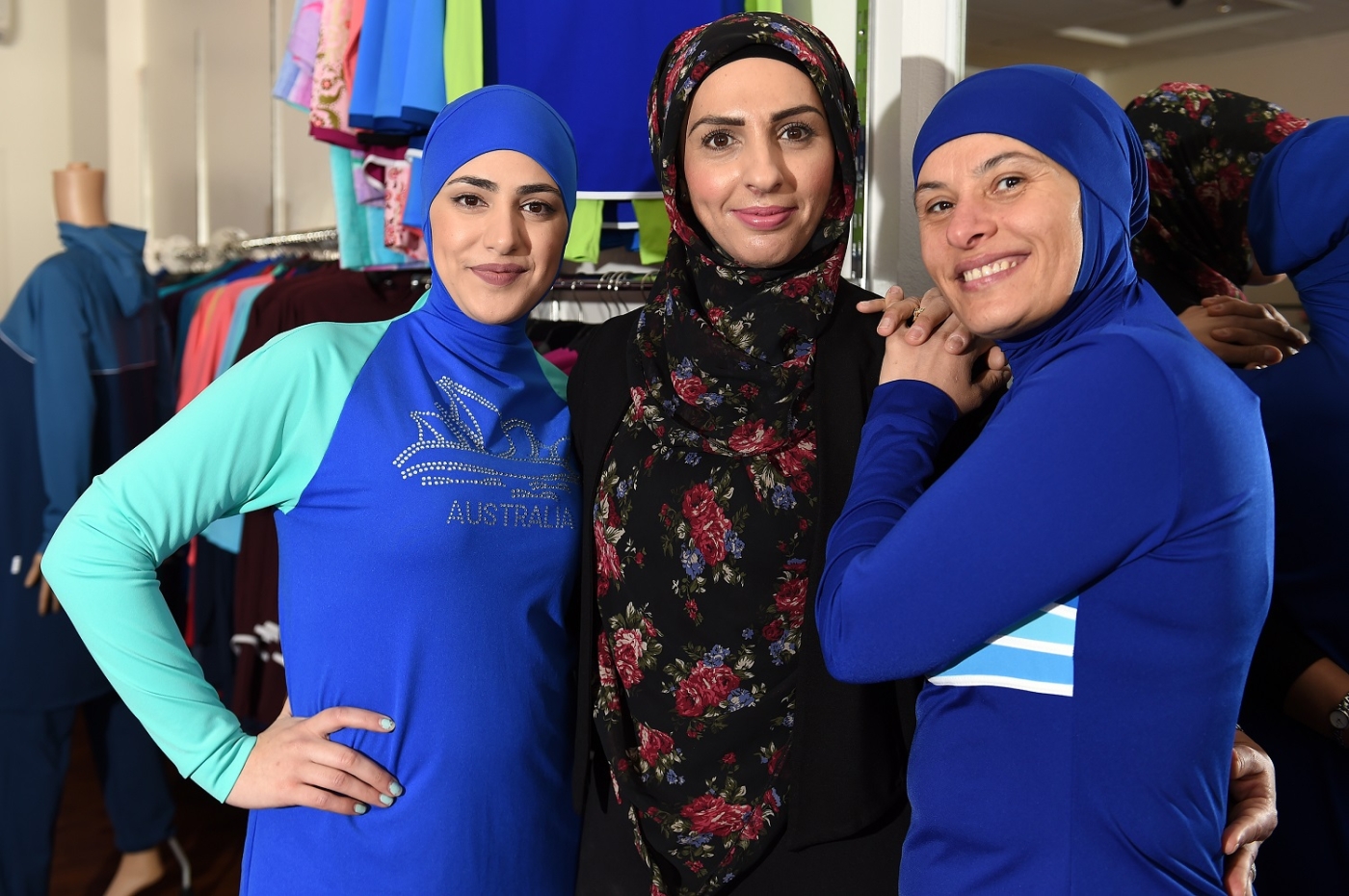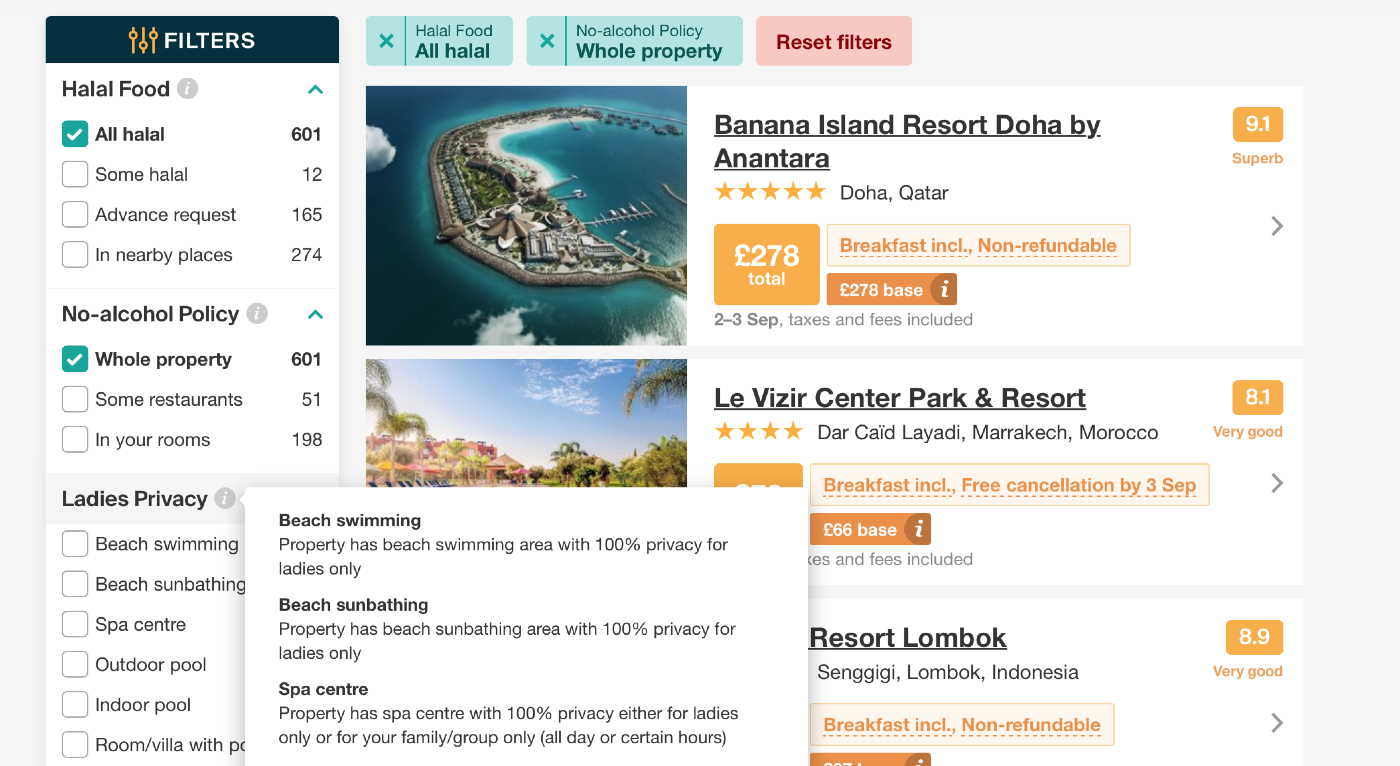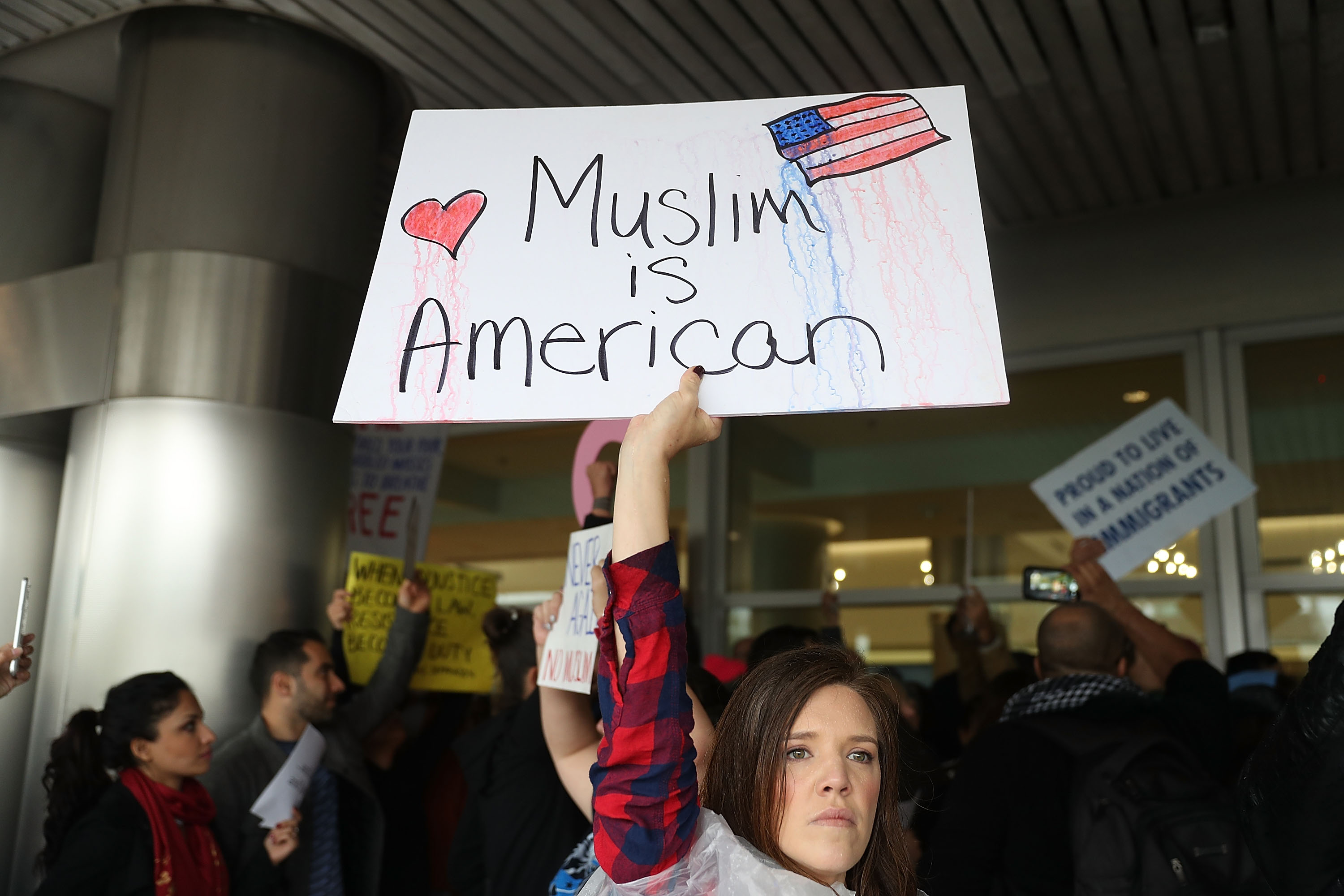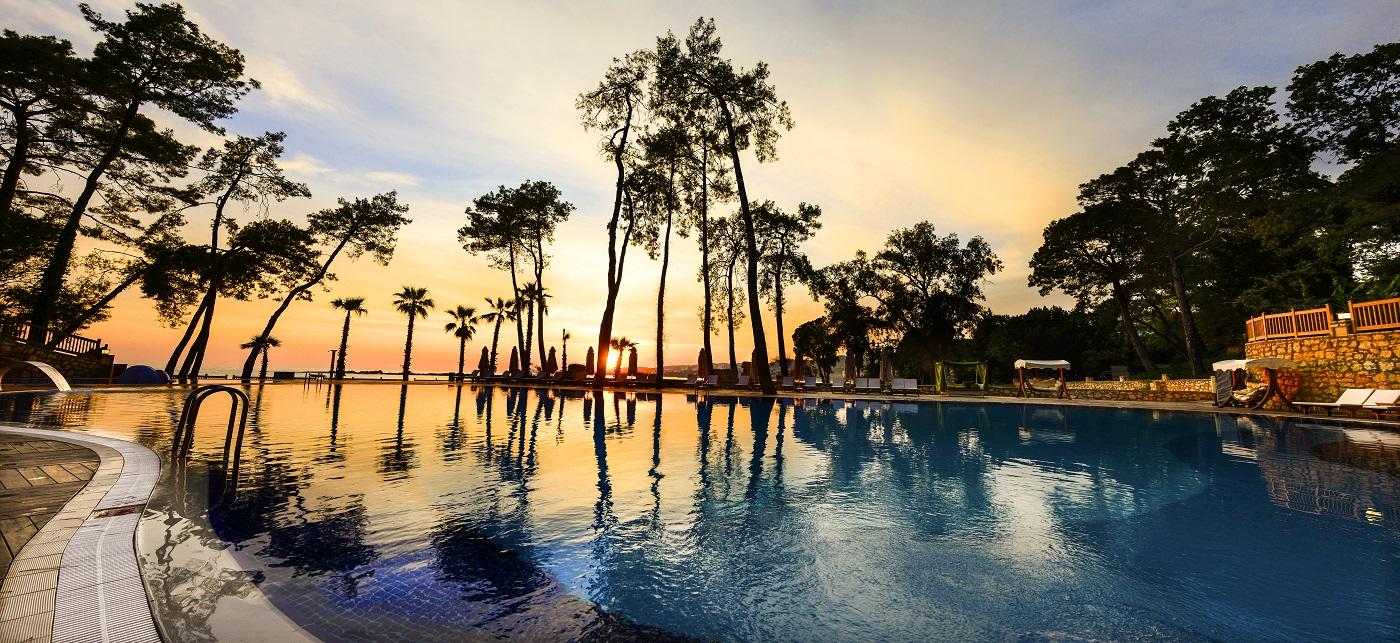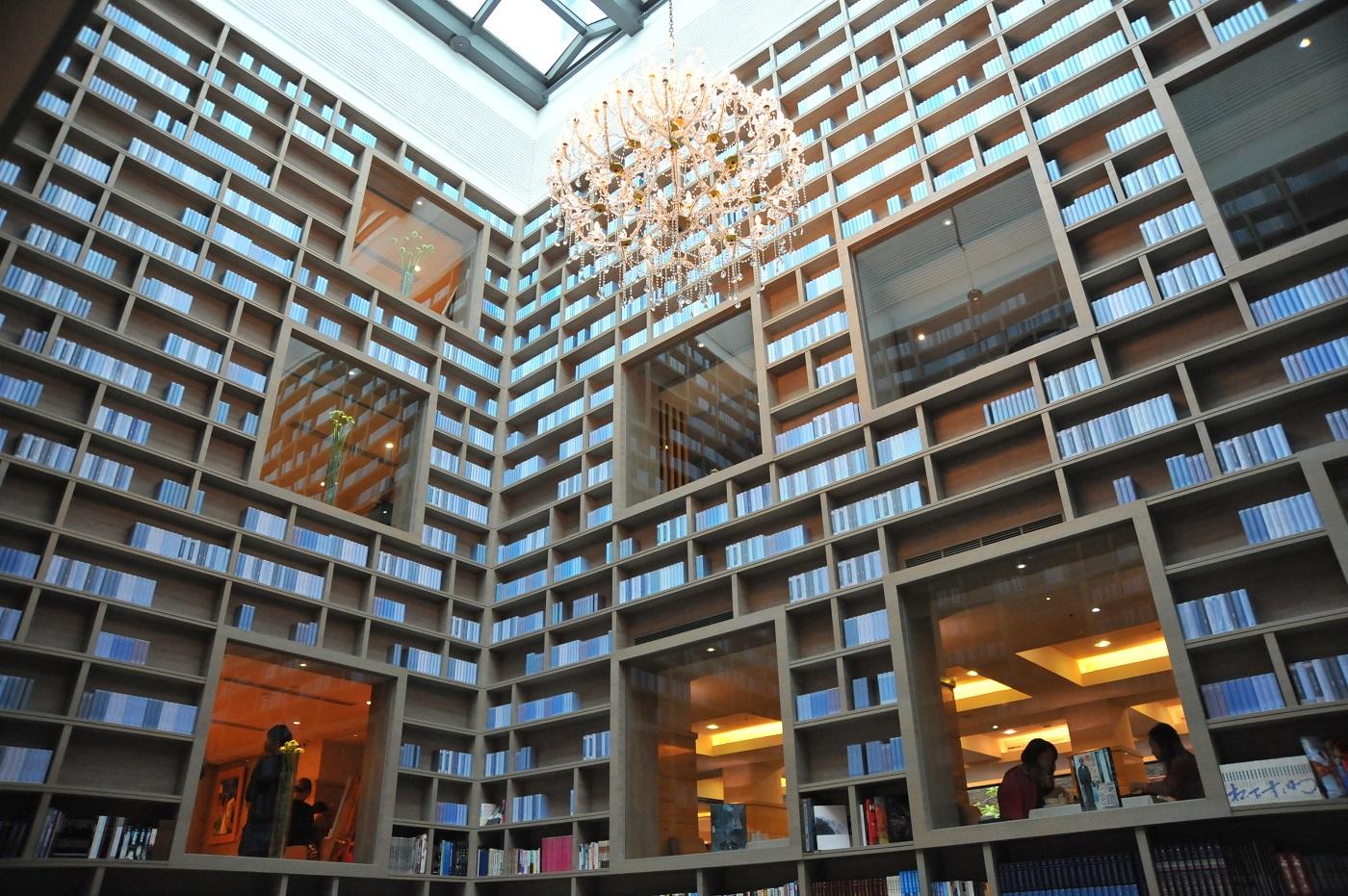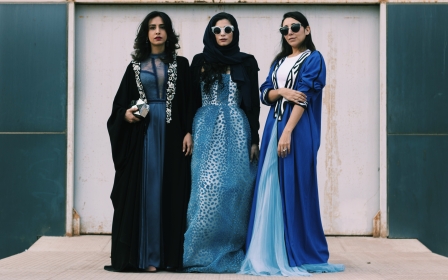Halal holidays: Sun, sea and seclusion appeal to women
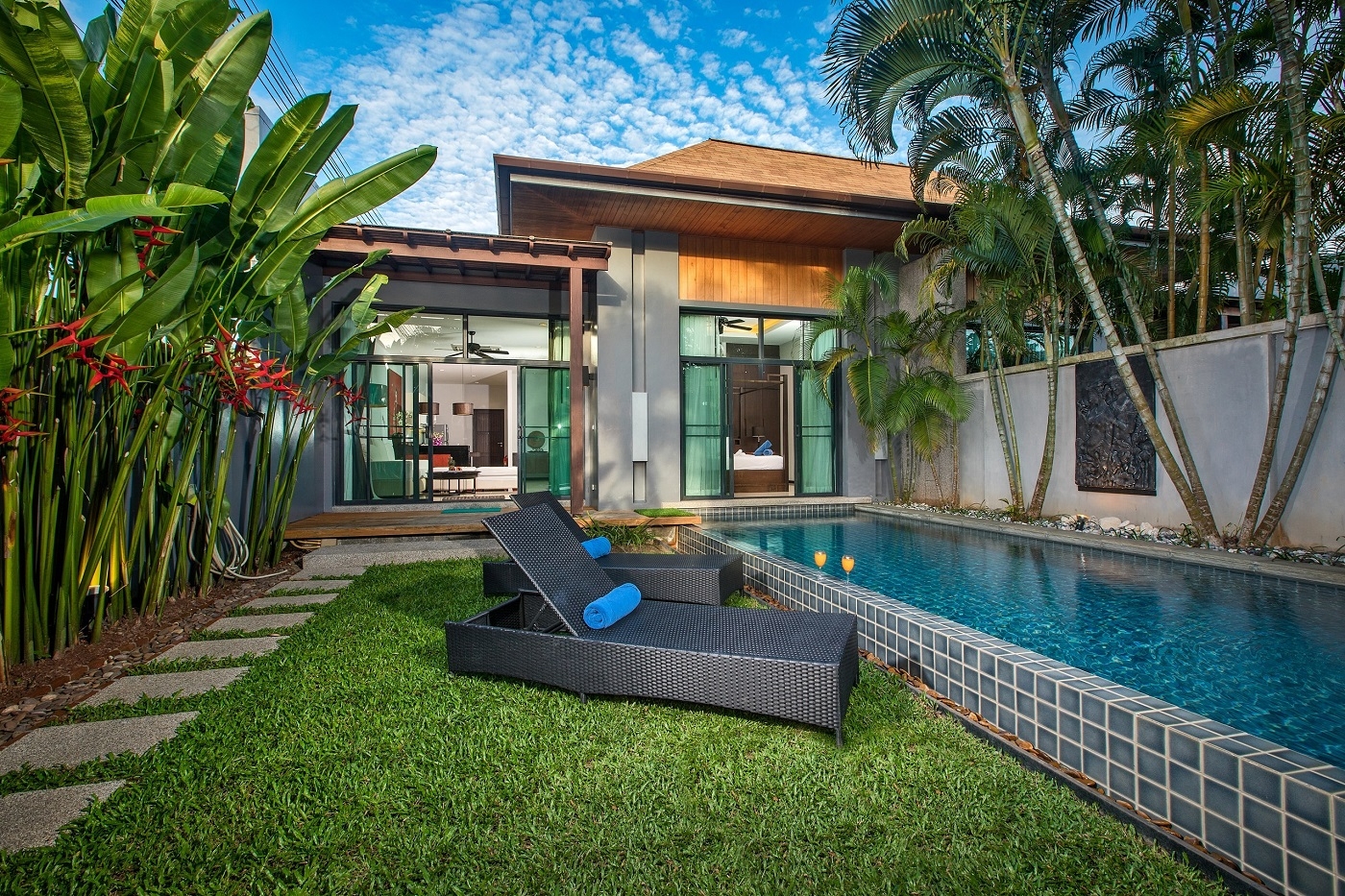
Salma Mahmoud, a mother of three from the UK, always found it tough to book a holiday. Like many Muslims, she wanted a break in the sun - but also a place where her privacy could be respected for reasons of faith.
“I love swimming - not that I’m good - and sunbathing,” she says. “But in the past I would book private villas in Spain and Malta. Although they were amazing, there were some major drawbacks. I’d have to email the owner to specifically get confirmation on whether it could be overlooked or not.
Resorts, Mahmoud found, were not much better. “I went to a regular resort three years ago and whilst I loved the all-inclusive element to it, I felt restrained. I was unable to sunbathe or swim, unless I wore a burkini, and my children were exposed to nude sunbathers.
Mahmoud says that a lot of private resorts would also be isolated, meaning she would have to hire a car. “Finding these resorts was hugely time consuming and I’d go through hundreds of properties on holiday lettings and look at all the pictures.”
New MEE newsletter: Jerusalem Dispatch
Sign up to get the latest insights and analysis on Israel-Palestine, alongside Turkey Unpacked and other MEE newsletters
But last year was different: Mahmoud booked a halal holiday at an Islamic resort.
“It was a normal all-inclusive resort with the added benefit of having a segregated pool for women. It was awesome,” she says. “Many of the women there didn’t even wear the hijab but simply wanted to be able to swim in a bikini in a female-only environment.”
Spending power
Halal holidays are a growing trend in the tourism industry which, like modest fashion and the rise in halal food outlets, reflect the growing spend of Muslims.
This new type of holiday targets Muslims, especially women, who want a break where they can let their hair down or tan without having to relax religious obligations.
In the Middle East, Islamic resorts have proven popular, promising high-end comfort, seclusion and destinations where Muslims are unlikely to face racism and discrimination. Resorts are expected to adhere to Islamic values, including prayer facilities and alcohol-free zones.
According to The Times in 2017, halal holidays are a booming market worth more than £100bn (around $125bn) a year: the market is expected to reach $274bn by 2023.
'They look for places where they can wear a burkini stress-free or put on a bikini in an all-female environment'
- Ufuk Secgin, HalalBooking.com
Ufuk Secgin is chief marketing officer at Reading-based HalalBooking.com, founded in 2009 to respond to a gap in the market.
Despite having less than 50 staff, its sales have risen by more than 90 percent during the past three years, booking 70,000 customers worldwide in 2018.
Secgin attributes the rise to a growing Muslim demographic, especially from more affluent countries like the UK and Germany, who want new and different experiences.
“A significant portion of our customers are based in Europe,” he says. “They are often second or third generation immigrants, who no longer feel that they have to spend all of their holidays visiting relatives ‘back home’. Instead they prefer to experience different types of holiday”.
Secgin said that while Muslim women could wear the burkini (although in certain regions of France such swimwear is banned) or travel to Muslim majority countries, many did not want to be restricted while observing their faith.
“They look for places where they can either wear a burkini stress-free or put on a bikini in an all-female environment.”
Will this destination welcome Muslims?
Elena Nikolova, founder of website MuslimTravelGirl, puts the rise of halal holidays down to one specific factor: the increased leisure spend of young Muslim women.
“Muslim girls today earn a good salary and are getting married later in life. They know there is so much more to life than just work and the prospect of marriage and family. There is adventure, fun, and discovering yourself before that big step in your life.”
Features at a typical female-only resort include designated women-only beaches, pools and spas, screens to guarantee privacy, strict security checks at the entrance, a ban on recording equipment (including phones and cameras) and no males over the age of six.
Nikolova began the blog in 2013. “Back then, there were no Muslim travel sites like there are today," she says. "For me personally, as a convert who loved the beach before, it is one of the things I struggled with and why I started the hijab-free villa concept. The villas offer privacy for Muslim women with pools and allow them to enjoy themselves.”
For others, including Muslim travel blogger Esra Alhamal who writes at ArabianWanderess, Muslim-friendly holiday destinations are all about providing a safe space.
“When I look for a destination, I read up on how they treat Muslims and how they usually treat them as I think that’s an important consideration.
“Travelling is wonderful, but there is no need to go to controversial places that speak up against Muslims and don’t welcome them, especially if you are visibly Muslim.”
Does halal cost more?
Turkey is one of the most popular countries for Muslims to visit. The reasons are manifold: historical heritage, clean beaches, city life and the meeting of east and west.
While Mahmoud stayed in Zehra in Mugla, southwestern Turkey, regions such as Izmir in the west and Antalya on the southern coast are also seeing a rise in women-only and private beaches, spas and pools.
Nikolova says: “Turkey has every ingredient to make the go-to halal holiday destination: nice weather, good resorts, halal food and understanding of the Muslim traveller. They are the leading option for halal resorts at the moment.
“People feel safe to go there as they know there are Muslims there, making them feel comfortable."
But tailored resorts and specific amenities can come at a cost. Alhamal, who shares her experiences travelling as a visibly Muslim female, says that Muslims who look for privacy while away can end up paying significantly more.
'Whatever the reason is, the price is always higher for privacy and comfort'
- Esra Alhamal, Muslim travel blogger
“Private villas are usually more expensive wherever they are, even within Muslim countries. They are a little cheaper if it’s a big family or group of girls going together. But whatever the reason is, the price is always higher for privacy and comfort.”
Sarah O’Neill from Halal Travel Escapes, a search engine for Muslim travellers, also says that there is a premium to pay for seclusion. “Sadly, there are very few ‘halal package holidays’ out there and these can only be found or booked through a Muslim owned travel agency,” she says.
“Halal Travel Escapes allows visitors to tailor make their holidays to suit their personal budget. Alternatively people can book halal-friendly hotels but you would be required to find and book your flights and any holiday extras yourself.”
As an example, a week at a women's health resort in Austria in August will cost £1,334 ($1,675) on HalalBooking.com. The 4-star resort has halal food, a spa centre with 100 percent guaranteed privacy and luxurious facilities.
New experiences
As travellers are increasingly looking for new experiences, more halal travel companies cater for the growing market beyond the Middle East, including city-break hubs such as London, Barcelona, Rome and Berlin.
According to travel expert and consultant Connor Dickins, many locations are already well equipped due to the influx of tourists from the Middle East and especially the Gulf.
“My experience has been that existing resorts will now adapt to serve halal food. Many prime locations that have been around for years will also attempt to keep their businesses thriving by catering for guests... and often catering for guests by providing halal food will be at no extra cost.”
Nabeel Shariff, director at Serendipity Tailormade, says that it’s no longer difficult to find a halal holiday as the market has become immensely competitive. Shorter trips, through which travellers can explore and discover new experiences, are also proving popular.
“The ‘niche’ label which was often associated with halal travel is nearing its final days, and in its place, the industry is recognising the opportunity halal travel presents,” he says.
The company encourages its customers to travel beyond their comfort zone and not just to Muslim majority countries, including New Zealand, and the Philippines.
“We’re finding shorter trips tend to be preferred where they can explore and discover new experiences” says Shariff. “The accessibility to travel has never been easier and female travellers are often the catalyst for the decision to explore somewhere new."
This article is available in French on Middle East Eye French edition.
Middle East Eye delivers independent and unrivalled coverage and analysis of the Middle East, North Africa and beyond. To learn more about republishing this content and the associated fees, please fill out this form. More about MEE can be found here.


